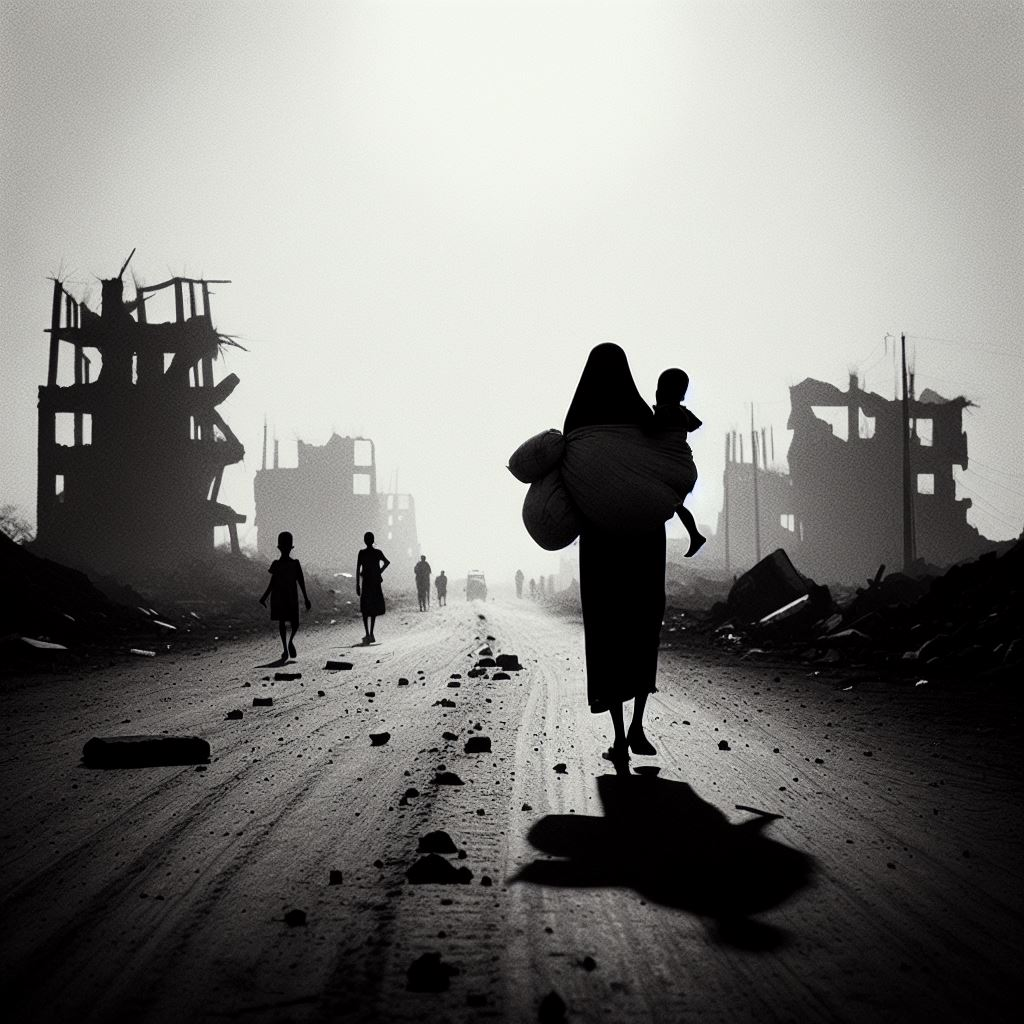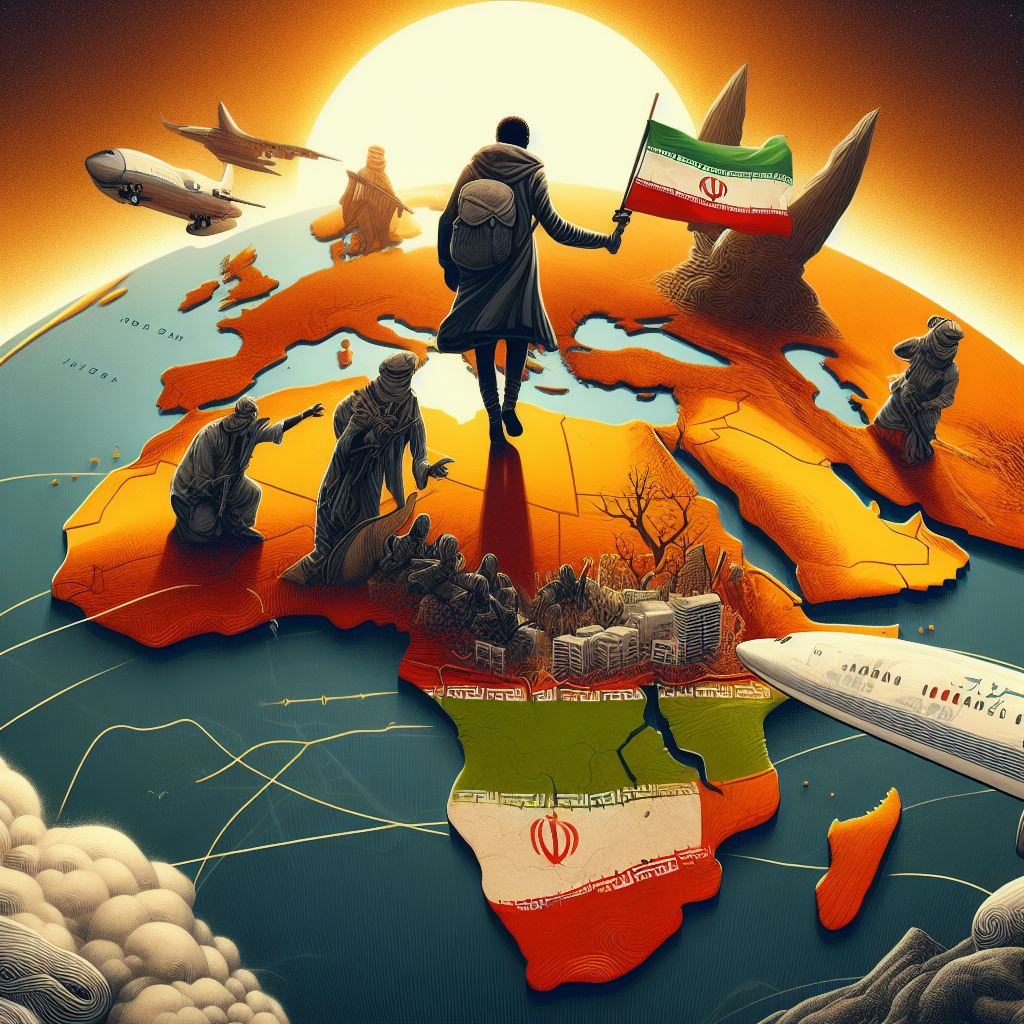For a long time, many people have known that Iran, a country ruled by religious leaders, has been supporting groups in the Middle East that are fighting for Islamic causes. These groups include Hezbollah in Lebanon, Hamas in Gaza, and the Houthis in Yemen. What might be news to many, though, is that Iran is now extending its reach into Africa. This move is quite strategic and shows Iran’s intent to grow its influence beyond its immediate neighborhood.
The Situation in Sudan
In Sudan, a country in Africa, there’s been a lot of turmoil. A few years ago, in 2019, people there began fighting for democracy to replace the government that was influenced by Islamic laws. The United States and the United Nations supported this push for democracy. However, the situation got more complicated when military groups and civilians clashed, and the country’s capital, Khartoum, was taken over by militias.
As the conflict continued, the leaders of the Islamist military found a new ally in Iran. Iran started sending weapons to Sudan, landing their planes filled with military supplies in Port Sudan, a city on the Red Sea. This area is strategically important and not too far from Yemen, where Iran supports the Houthis, a group that has taken control of a significant part of that country and has been disrupting international shipping routes.
Iran’s Ambitions in Africa
Iran’s actions in Sudan are part of a larger plan to increase its influence in Africa. For example, Iran has been sending drones and other military support to Sudan’s government forces. This is significant because the same type of drones have been used by Russia in its conflict in Ukraine, showing the international connections of Iran’s military support.
But Iran’s interest in Africa isn’t just about military alliances. The President of Iran, Ebrahim Raisi, has been visiting several African countries, promoting Iran as a friend and partner. In these visits, he’s talked about opportunities for cooperation and criticized the United States for imposing sanctions on countries like Zimbabwe and Iran itself.
Iran also tries to connect with people in Africa through cultural, academic, and religious activities. They’ve been building schools and medical clinics and supporting Muslim communities. However, their support is not just peaceful; it also includes military aid for some groups fighting in West Africa.

The Complex Web of Conflict
Back in Sudan, the conflict is unique because it’s not just rebels fighting the government. Instead, two parts of the national army are fighting each other. One group, called the Rapid Support Forces (RSF), is led by General Mohammed Hamdan Dagalo, who opposes the Islamist influence and supports the democratic revolution from 2019. The other group, called the Sudanese Armed Forces, follows General Abdul Fattah Burhan, who wants to maintain the military’s power and control over the economy.
The situation is made even more complicated by Iran’s involvement. By providing military support to the Islamist generals, Iran is influencing the outcome of this conflict and potentially gaining a strategic foothold in the region.
What This Means for Africa and Beyond
Iran’s efforts to increase its influence in Africa through military support and cultural outreach are significant. They show how international politics can affect local conflicts and vice versa. For Sudan, Iran’s involvement means that the fight for control and the future direction of the country becomes even more complex.
For the rest of Africa and the world, Iran’s actions are a reminder of the ongoing struggle between different powers for influence in strategic regions. The situation in Sudan and Iran’s broader activities in Africa highlight the interconnectedness of global politics and the importance of understanding these dynamics.
This article is based on the following article:

Background Information
Understanding these background elements will help the reader grasp the complexities of Iran’s involvement in Africa, the strategic importance of the regions discussed, and the broader implications of these activities on international relations and regional stability.
1. Iran and Its Government
Iran, officially known as the Islamic Republic of Iran, is a country in the Middle East. It has a unique form of government where religious leaders hold significant power, alongside elected officials. This blend of theocracy and democracy means that religious principles heavily influence Iran’s policies and actions, both domestically and internationally.
2. Islamist Groups and Movements
Islamist groups aim to implement Islamic law (Sharia) in government and society. These groups vary widely in their methods, from peaceful political movements to militant actions. The article mentions Hezbollah, Hamas, and the Houthis, which are Islamist groups active in Lebanon, Gaza, and Yemen, respectively. They are known for their military and political activities, often opposing Western influence in the region.
3. The Situation in Sudan
Sudan is a country in Northeast Africa. It has experienced significant political and social upheaval in recent decades, including a long-standing conflict in Darfur, the separation of South Sudan in 2011, and more recently, a popular uprising in 2019 that aimed to end decades of Islamist rule. The conflict mentioned in the article involves military factions and civilian groups vying for control and the future direction of the country.
4. The Red Sea’s Strategic Importance
The Red Sea is a crucial waterway that connects the Mediterranean Sea to the Indian Ocean via the Suez Canal. It’s vital for international trade and has significant strategic and military importance. Control over parts of the Red Sea coastline offers significant advantages, including control over maritime routes and influence in the region.
5. Iran’s Regional Ambitions
Iran aims to expand its influence in the Middle East and beyond, partly as a counterbalance to Western powers and regional rivals like Saudi Arabia. Its support for groups like Hezbollah, Hamas, and the Houthis, along with its involvement in Sudan, reflects this strategy. Iran seeks to establish alliances and leverage these relationships to strengthen its position and promote its interests.
6. The Concept of Proxy Wars
A proxy war occurs when two countries or groups support opposing parties in a conflict without fighting each other directly. In the Middle East and Africa, several conflicts can be seen as proxy wars, with various international powers, including Iran, supporting different sides to advance their strategic interests.
7. Democratic Movements vs. Military Control
In many countries, including Sudan, there’s a tension between movements advocating for democracy and military forces seeking to maintain control. Military leaders often hold significant economic and political power, which they are reluctant to relinquish, leading to conflicts with civilian populations demanding democratic governance.
8. Iran’s Outreach in Africa
Iran’s efforts to build relationships in Africa, through military support, cultural exchanges, and economic investments, aim to extend its influence and counteract Western dominance. Africa’s strategic importance, due to its natural resources and geopolitical position, makes it a significant focus for many countries, including Iran.
Please subscribe to Insight Fortnight, our biweekly newsletter!
